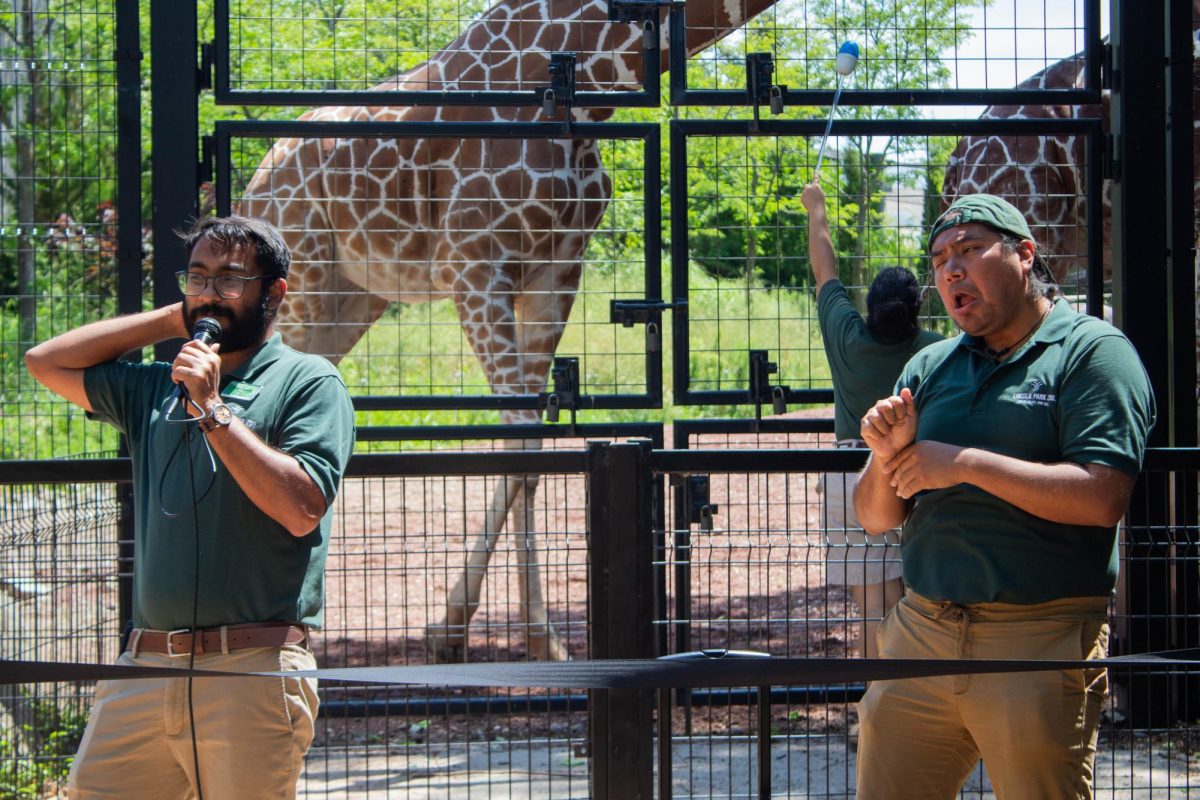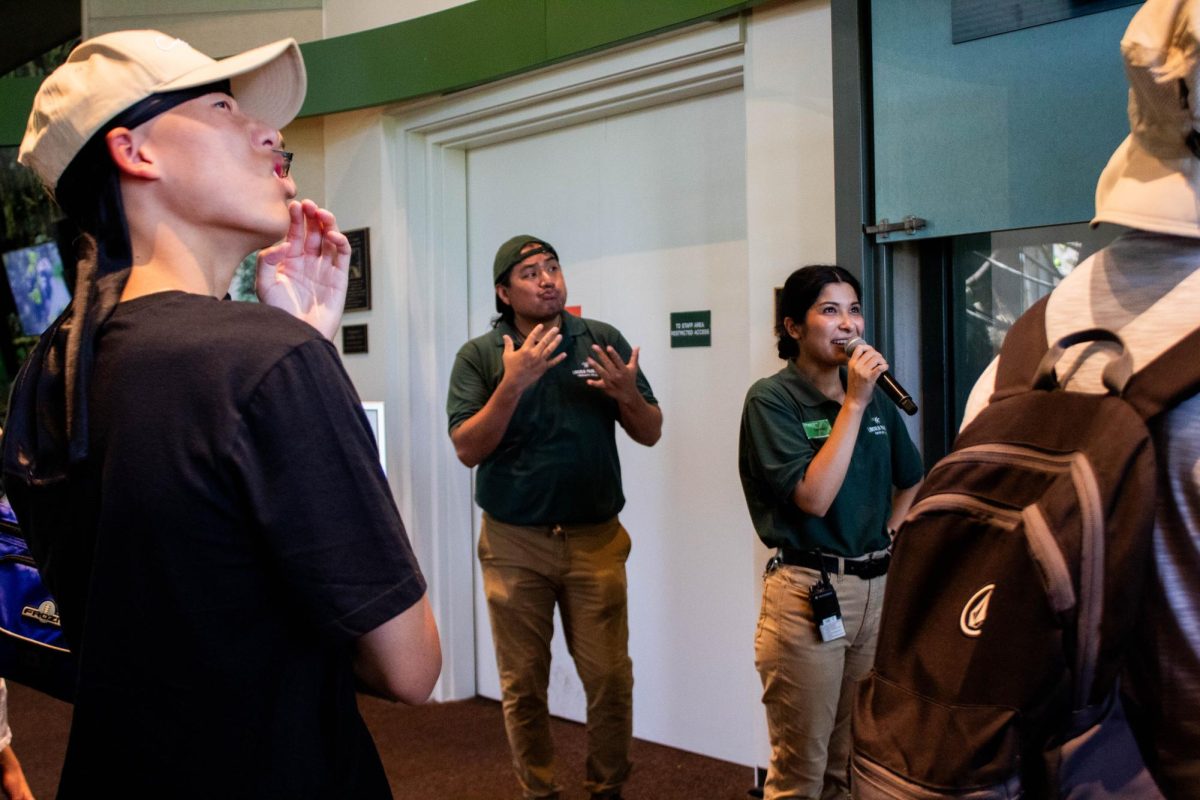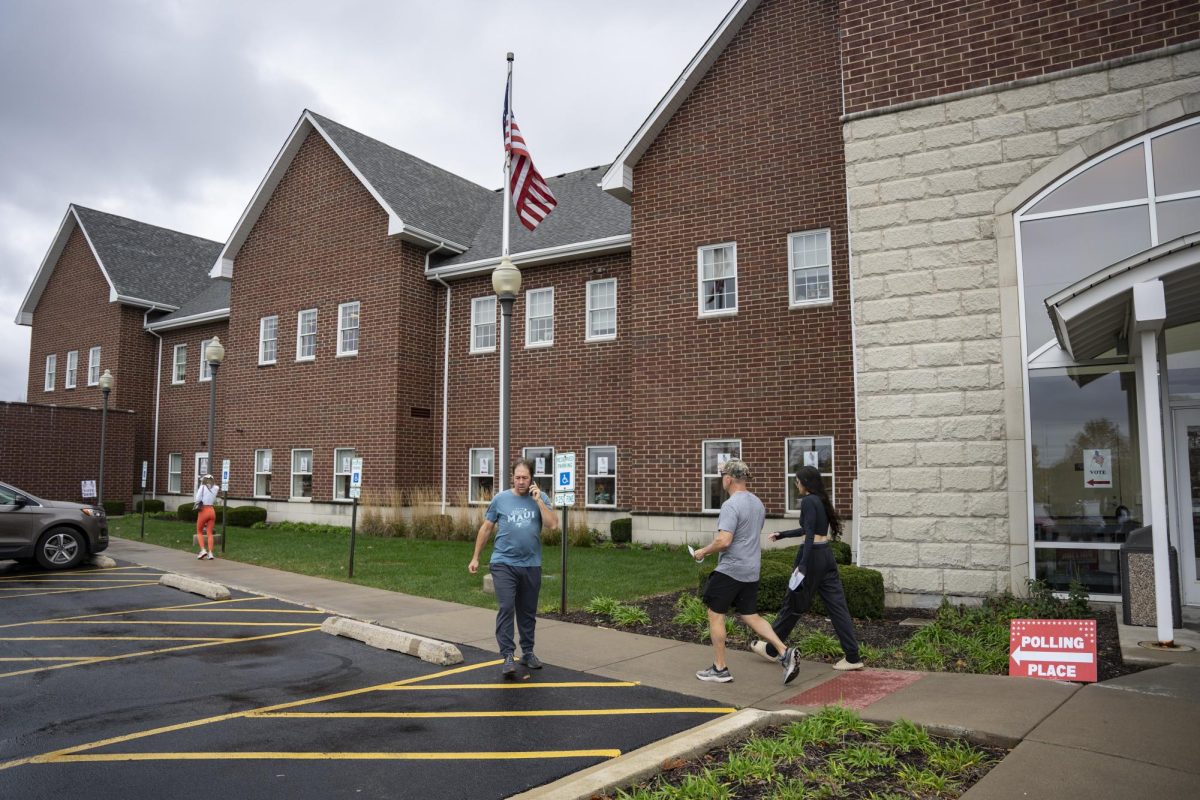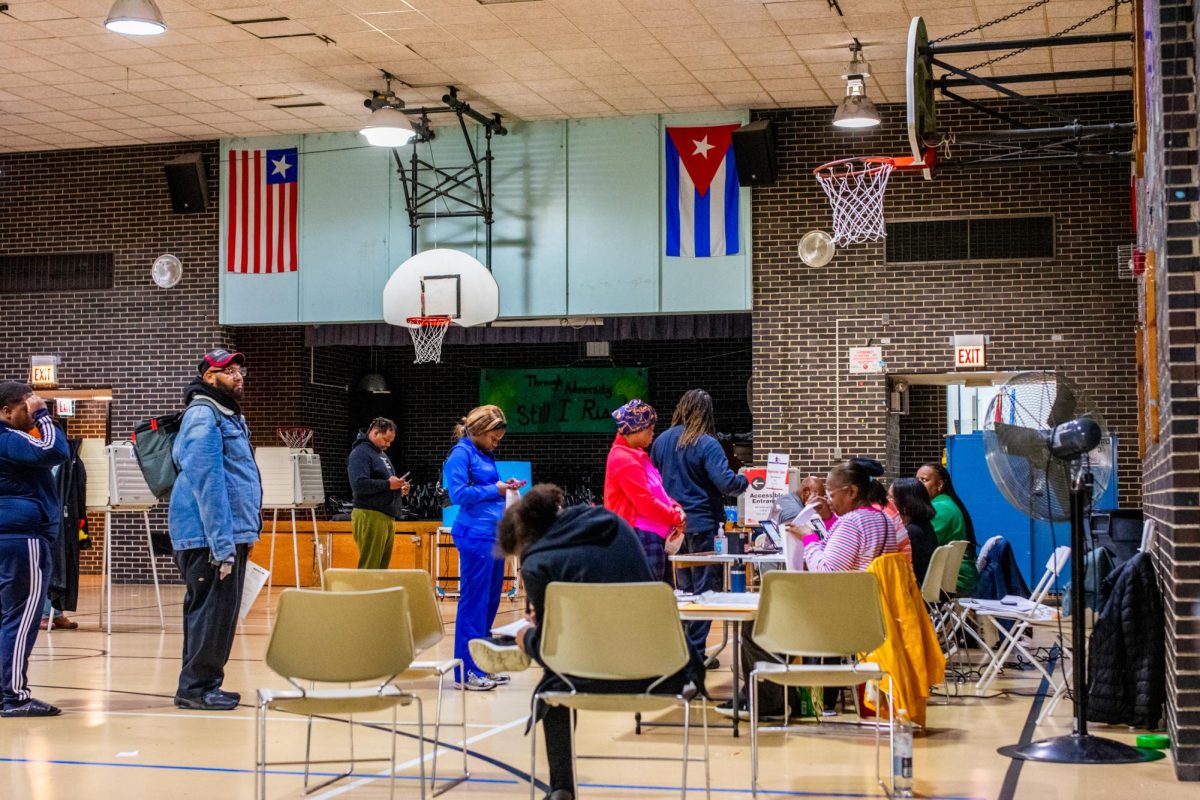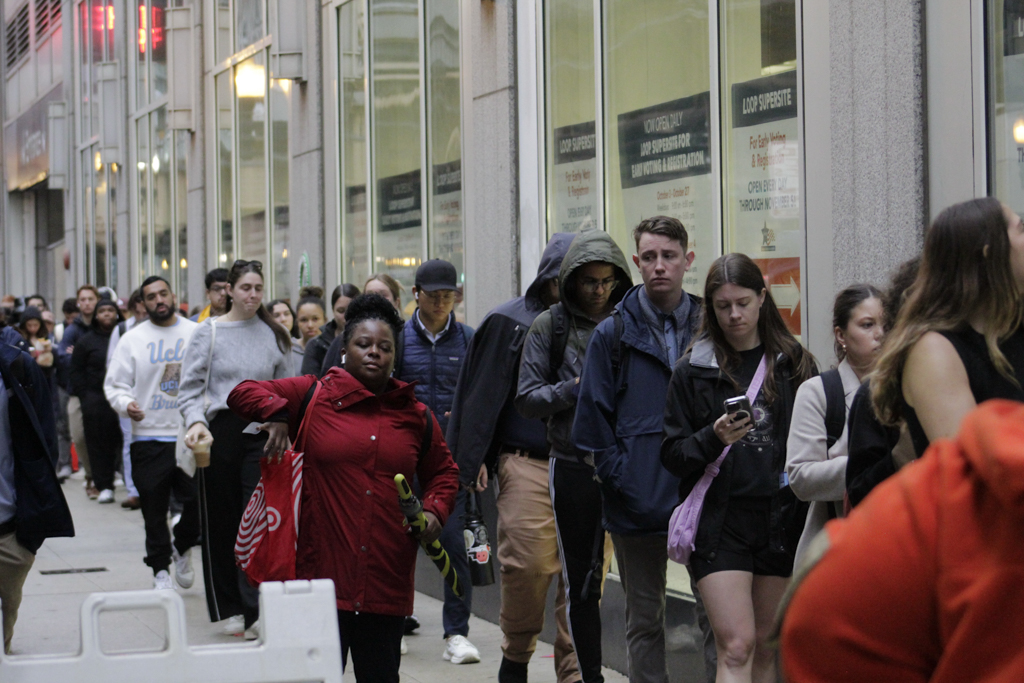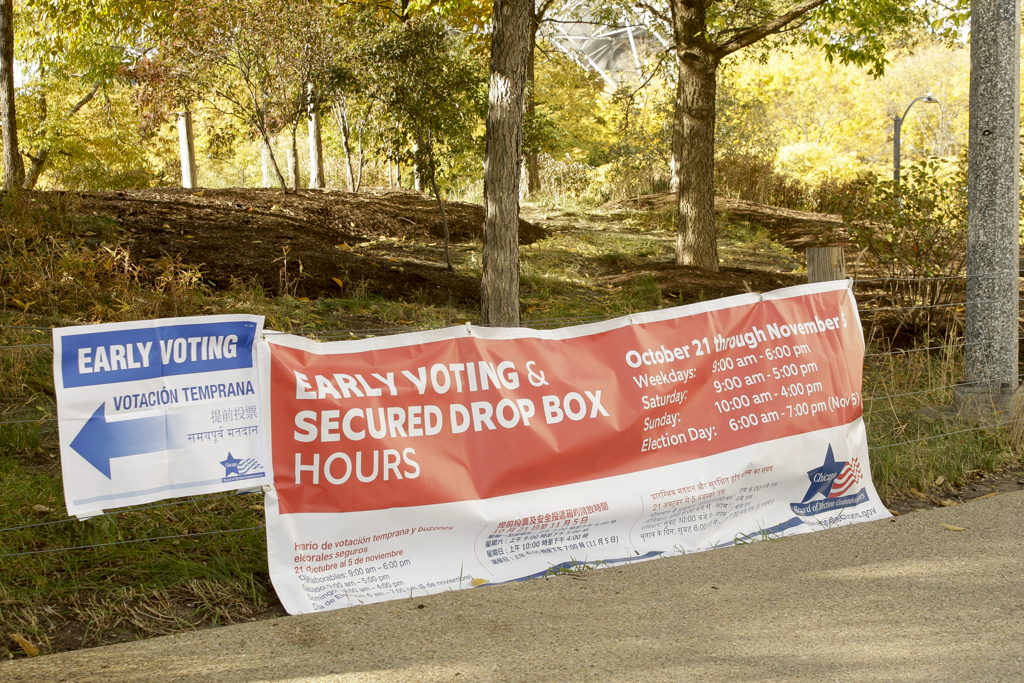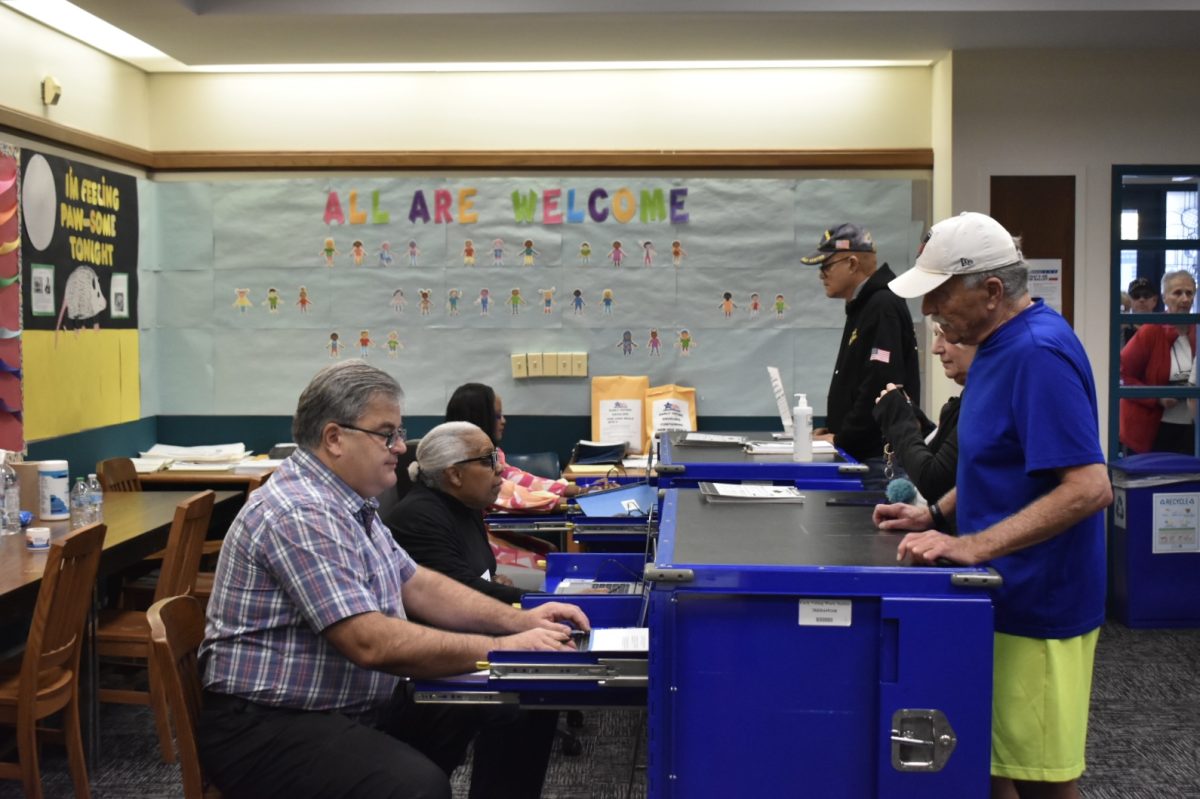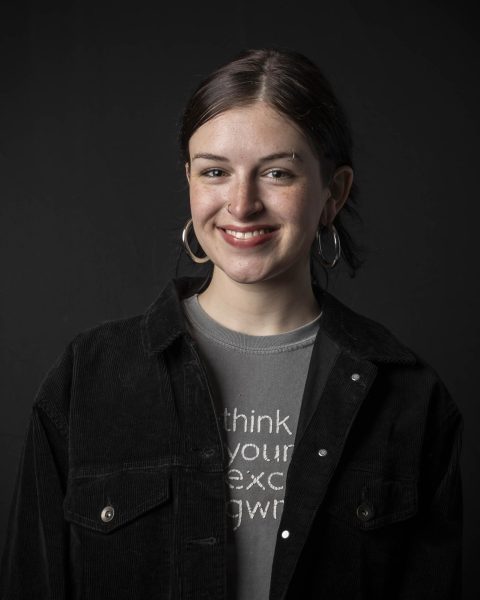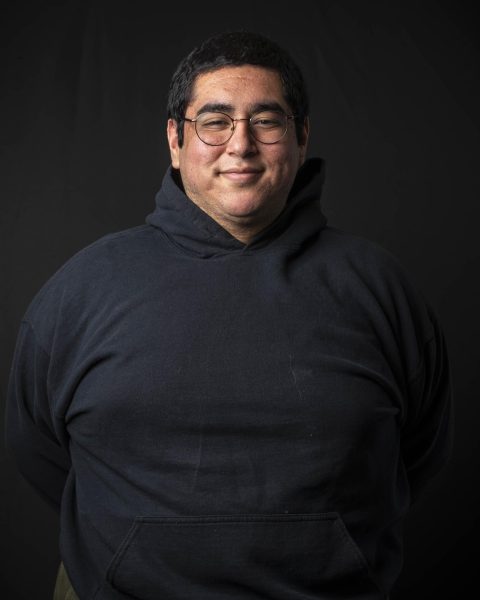In a new partnership with Lincoln Park Zoo, Columbia students provided American Sign Language interpretation this summer for animal care and training demonstrations.
Octavio Martinez, who is graduating after the program ends with a degree in ASL interpretation, was one of four students who earned credit hours instead of pay as part of the practicum program.
One day in late July, Martinez’s schedule included interpreting the narrations, verbally given by Emmanuel Meenattoor, of multiple demonstrations. One event showed zoo workers training giraffes with various plant snacks. The next demonstration he interpreted was held in the Regenstein Center for African Apes; dozens of zoo visitors listened and watched as they were shown the ways apes are taught to identify different images.
“Interpreting here is so fun, you get to learn about various animals and the people that work here, their knowledge is wild,” Martinez said.
The program, introduced this summer, was created in collaboration with Columbia’s ASL-English Interpretation Department after Bill Green, the Lincoln Park Zoo’s first manager of accessibility and inclusion, got in contact with Carrie Speakman, a part-time instructor, and Peter Cook, chair and associate professor.
“There’s not a lot of signs for specific animals and what they do, so we have to figure out how to give a sign instead of just fingerspelling all the time,” Cook signed using ASL. “So it’s a challenge and a wonderful experience for our students — I’m so glad we are partnering.”
ASL interpretation, provided by Columbia students Fridays through Mondays, is just one of the many new changes Green has led at Lincoln Park Zoo. “There’s a lot of creative problem solving” that goes into his work in improving accessibility, he said. “We want people to have a lot of autonomy.”
For many Chicagoans, visiting the zoo is an impromptu decision, he said. However, “if you’re disabled, a lot of the time it is not always that easy. Going to a venue can take a lot of planning, it can take weeks out in arranging things. I want to try to remove as much of that as possible.”
Green hosted a series of “listening sessions” during fall of 2021 to understand the different visitor experiences for able-bodied and disabled visitors. During these sessions, people with disabilities were invited to the zoo to share what they wanted or needed to have a more autonomous and fun experience.
These listening sessions became focus groups, and Green’s team created new ideas of what to add or change — one update being the provision of ASL on a more regular basis without a visitor needing to request it in advance.
“People ask me how many people with ASL are using this, but one of the beautiful things about this [new program] is that you don’t have to register. So I can’t tell you how many people who use ASL have come to do this,” Green said. “And when I explain that to people, they’re like ‘oh yeah, that makes a lot of sense.’”
Other changes at the zoo have been adding more transparent panels to fences for unobstructed animal viewings for visitors using wheelchairs, quiet rooms for visitors with sensory sensitivity and improving audio transmission for visitors with hearing aids.


